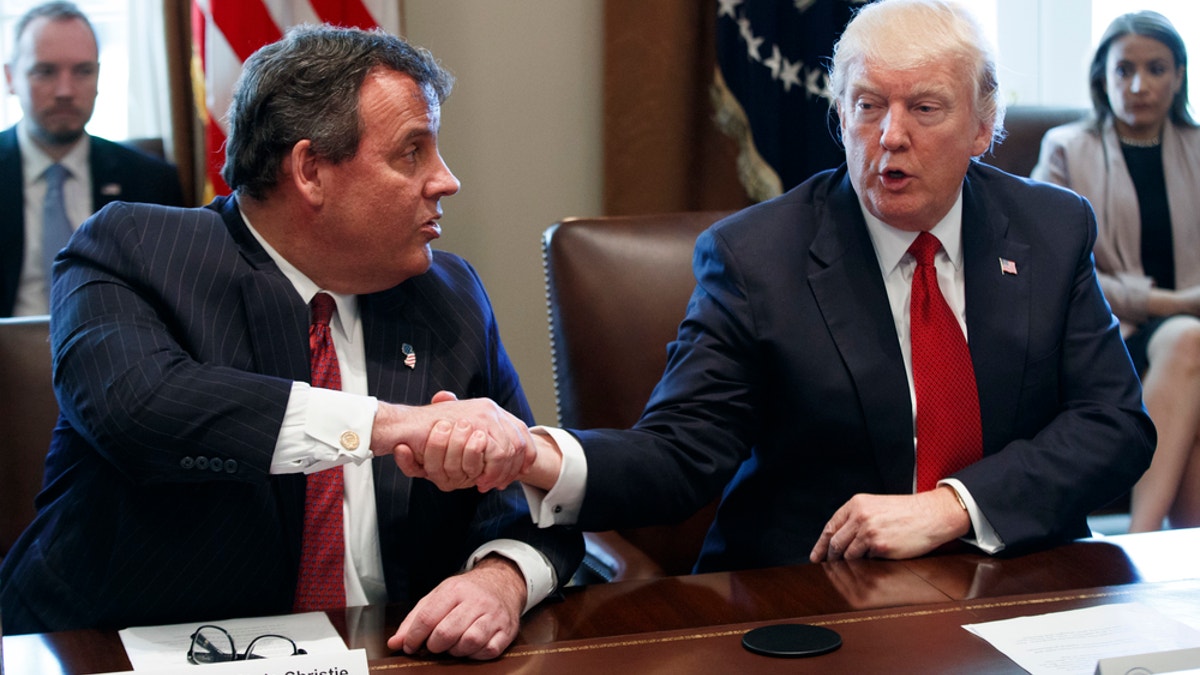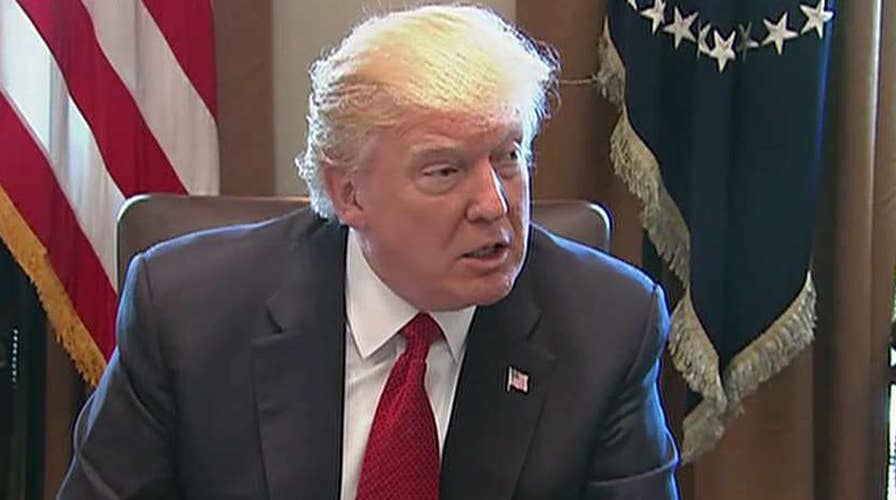President Trump holds listening session on opioid addiction
The president will work with state and local governments to combat the crisis
Perhaps more than anyone, they felt hope and relief over the news this week that President Donald Trump had established an opioid addiction commission that is tasked with looking at ways to respond to an epidemic that claims some 90 deaths each day in the United States.
They are the loved ones of people who became addicted – typically through a painkiller first prescribed by a doctor following an injury or another physical condition – and died of an overdose.
And they expressed faith that with New Jersey Gov. Chris Christie as its appointed chairman, the commission will make a difference.
“It’s outstanding that they’re doing this,” said David Delmonaco, a New Jersey resident whose son, Robert, died after battling addiction that first began through prescription painkillers. “There’s nobody better to do this than Chris Christie. He’s given a lot of people hope in the state. He’s the only guy who has taken this by the horns, he’s taking charge.”
EXCLUSIVE: CDC CHIEF FRIEDEN: HOW TO END AMERICA'S GROWING OPIOID EPIDEMIC
Like other relatives of people caught in the grip of addiction, Delmonaco said there wasn’t much of a support system when he and his son’s mother desperately tried to get the doctor to stop issuing prescriptions to Robert, and when they confronted pharmacists who dismissed their concerns.
The doctor, George Beecher, was indicted last summer on charges linked to prescribing a staggering 60,000 tablets of oxycodone to more than two dozen people he never even examined or met.
“I was on my last breath until Chris Christie,” Delmonaco said.
Beecher is one of a record 31 doctors who New Jersey authorities sanctioned in the past 12 months, saying they overprescribed painkillers and other narcotics.
New Jersey has pursued criminal charges against some, and imposed sanctions including suspension and taking away the license to practice. The crackdown on unscrupulous doctors is part of a concerted effort in New Jersey to fight the opioid epidemic on multiple fronts – law enforcement, medical and a preventive educational campaign.
Keith Kinsman, a Pennsylvania businessman whose son Benjamin died last year of a heroin overdose, said of Trump's creation of the commission: "We're very encouraged by it."

President Donald Trump shakes hands with New Jersey Gov. Chris Christie during an opioid and drug abuse listening session. (Associated Press)
“We believe with all our hearts that it takes four legs to make a sturdy chair,” he said. “It takes prevention, law enforcement, treatment, recovery, and support."
He said Christie has the perfect mix of what it takes to have a successful commission.
"He’s got the drive and determination of a very successful prosecutor, but the heart of an advocate” on the issue of addiction, Kinsman said. “If we don’t handle this problem this way on national level, we’re setting these people up for failure.”
Some relatives of those who died of overdoses are cautiously optimistic.
“It’s a step in the right direction,” said Michael Zlydak, whose brother, Andrew, died of an overdose on prescribed fentanyl in 2014. “I’m glad that the government is stepping up to that.”
“They need to look at how doctors prescribe, doctors need to be more focused on the patient rather than just giving a prescription to mask the pain,” said Zlydak, who lives in New Jersey. “Some doctors take the easy way out, they prescribe a stronger dose when a painkiller isn’t enough anymore.”
We believe with all our hearts that it takes four legs to make a sturdy chair. It takes prevention, law enforcement, treatment and recovery, and support.
At a White House meeting Wednesday to discuss the commission, Trump said it was time to put the opioid scourge on the national stage.
The meeting included members of his Cabinet, law enforcement chiefs, recovering addicts and advocates. Trump listened intently as Vanessa Vitolo and AJ Solomon, two recovering addicts from New Jersey, described their harrowing battles with substance abuse. Both became hooked on prescription pain killers, and quickly transitioned to heroin.
“It’s an illness that doesn’t discriminate, if there are prescription drugs you can become addicted very quickly without even understanding what it is because your body and your mind play tricks on you,” said a White House official who was at the Trump meeting on Wednesday and asked to remain anonymous.”
The official told Fox News that among the ideas discussed were getting the pharmaceutical industry involved in coming up with painkillers that do not have addictive properties. The official said that getting educators involved in addressing the crisis is critical, as well, because children need to hear as early as possible about the dangers of addiction and how to avoid it.
“This is something we feel we can combat, and we get our arms around and help those who are working in these areas.”
The Associated Press contributed to this report.


